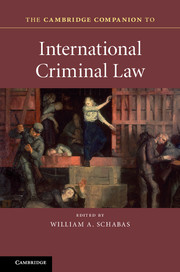15 - Slobodan Miloševic
from PART IV - TRIALS
Published online by Cambridge University Press: 05 December 2015
Summary
Slobodan Milošević was the President of the Federal Republic of Yugoslavia during the dissolution of Yugoslavia. From 1991 to 1999, his Serb troops and Bosnian Serb proxies fought four brutal Balkan wars. Hundreds of thousands died, most of them innocent civilians, and millions were displaced. Milošević saw himself as a modern-day Abe Lincoln, employing force in a valiant effort to hold his crumbling Yugoslavia together. Later he stood trial for the most serious crimes known to mankind – grave breaches of the Geneva Conventions, crimes against humanity, and genocide.
On 12 February 2002, the former Serb leader became the first former Head of State ever to face trial before an international criminal tribunal. With the combative Milošević acting as his own lawyer, a legal battle of epic proportions was waged at the Security Council-created Tribunal in The Hague known as the International Criminal Tribunal for the former Yugoslavia. It is often said that courts try cases, but cases also try courts. This proved to be particularly true with respect to the Milošević trial, since Milošević's primary strategy was to challenge the Yugoslavia Tribunal's legitimacy and impartiality, rather than to seek an acquittal through conventional tactics.
Although the Yugoslavia Tribunal has tried over a hundred other indicted war criminals, Prosecutor v. Slobodan Milošević was the case for which the ad hoc Court was created. Milošević was the highest level defendant, accused of the most serious crimes. So much was at stake.
If viewed as legitimate and fair, the Milošević trial could potentially serve several important functions in the Balkan peace process. By pinning prime responsibility on Milošević and disclosing the way the Yugoslav people were manipulated by their leaders into committing acts of savagery on a mass scale, the trial could help break the cycle of violence that has long plagued the Balkans. While this would not completely absolve the underlings for their acts, it could make it easier for victims to eventually forgive, or at least, reconcile with former neighbours who had been caught up in the institutionalised violence. This could also promote a political catharsis in Serbia, enabling the new leadership to distance themselves from the discredited nationalistic policies of the past.
- Type
- Chapter
- Information
- The Cambridge Companion to International Criminal Law , pp. 295 - 311Publisher: Cambridge University PressPrint publication year: 2016
References
- 1
- Cited by



